Program Faculty
| Name | Research Interest | |
|---|---|---|
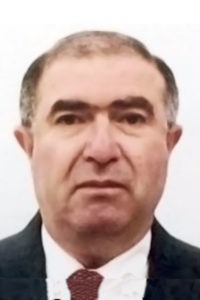 | Muhammad Abdul-Ghani, M.D.,Ph.D. Professor/Research Medicine/Diabetes | The seminal studies of Dr. Muhammad Abdul-Ghani have helped to define the role of progressive beta cell failure in the evolution from prediabetes to T2DM and to elucidate the contribution of mitochondrial dysfunction in the development of insulin resistance and T2DM. |
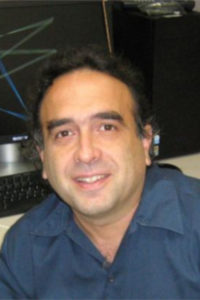 | Armen Akopian, Ph.D. Professor Endodontics | A main research interest of Dr. Armen Akopian’s lab is to understand why standard analgesics has sex- and age-dependent efficiency; and importantly, why chronicity of pain conditions affected by sex and age. |
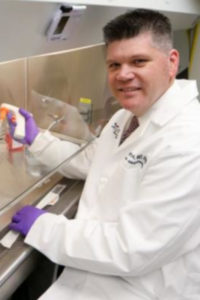 | Gregory J Aune, M.D., Ph.D. Associate Professor Pediatrics | Pediatric Cancer Survivorship – Clinical care of long-term survivors of pediatric cancer. |
 | Juli Bai, Ph.D. Instructor/Research | The major focus of my research effort concerns the mechanisms of obesity-induced insulin resistance, sterile chronic inflammation, and energy imbalance. Particularly, I’m interested in how obesity leads to mitochondrial dysfunction and how adipocytes crosstalk with other cell types to regulate energy homeostasis in WAT, BAT as wells as in other metabolic tissues. Better understanding of the mechanism underlying obesity-induced metabolic dysfunction will provide important information for the development of new therapeutic targets for the treatment of obesity and its related diseases. |
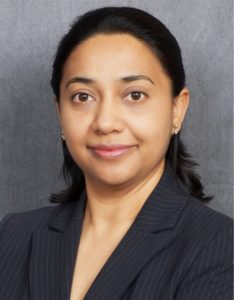 | Swati Banerjee, Ph.D. Associate Professor Cellular and Integrative Physiology | Dr. Swati Banerjee uses the Drosophila model system to investigate the cellular and molecular bases of axonal ensheathment and synaptic development and function. |
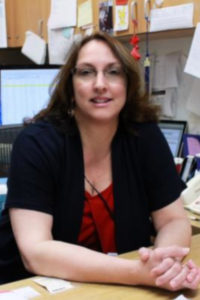 | Kelly Berg, Ph.D. Professor/Research Pharmacology | Dr. Kelly Berg’s lab centers on answering questions concerning the molecular nature of drug efficacy and the mechanisms by which the efficacy of drugs can be regulated. |
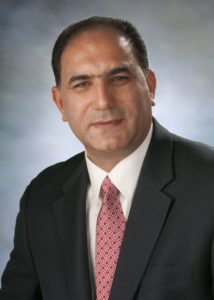 | Manzoor Bhat, M.S., Ph.D. Vice Dean for Research & Professor Cellular and Integrative Physiology | We are investigating the genetic and molecular basis of complex and reciprocal interactions between various types of glial cells, which play a key role in axonal insulation, blood-brain barrier formation and axon guidance across species. |
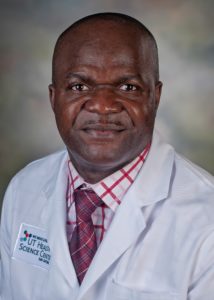 | Jean C. Bopassa, Ph.D Associate Professor Cellular and Integrative Physiology | Dr. Jean Bopassa’s lab general research interest is to investigate the role of mitochondria in cardio-protective effect of hormones against ischemia/reperfusion injury and heart failure. |
 | Carie R. Boychuk, Ph.D Assistant Professor Cellular and Integrative Physiology | Dr. Boychuk’s laboratory is particularly interested in how the brain monitors, processes, and integrates energy homeostatic signals under normal physiology and pathological disease states. |
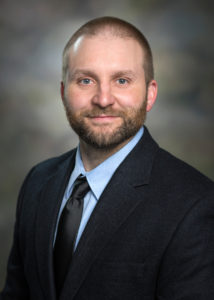 | Jeffery A. Boychuk, Ph.D Assistant Professor Cellular and Integrative Physiology | Dr. Boychuk’s lab is dedicated to treating the brain after mechanical and vascular trauma in order to improve lives affected by stroke, traumatic brain injury and epilepsy. |
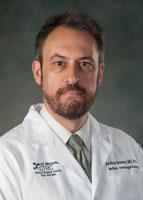 | Andrew Brenner, M.D. S & B Kolitz/CTRC-Zachry Endowed Chair Neuro-Oncology Research | A specialist in both breast cancer and malignancies of the brain and spinal cord, Dr. Andrew Brenner not only focuses on clinical management, but also on the development of novel therapies to treat breast cancers and central nervous system tumors. |
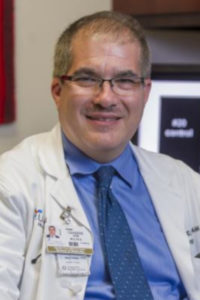 | Jose E. Cavazos, M.D., Ph.D. Associate Dean, M.D./Ph.D. Program, Professor Neurology | Dr. José Cavazos’s lab studies activity-dependent plasticity in the hippocampal formation in the developing, adult, and aged brain using a variety of experimental models of epilepsy, seizures, and epileptogenesis. Previous studies from our laboratory have shown that repeated seizures induce progressive neuronal death and axon sprouting that permanently alter the hippocampal circuitry lending it more susceptible to additional seizures and memory dysfunction. |
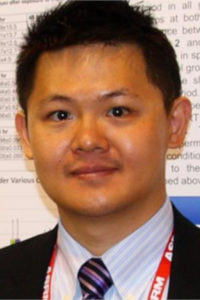 | T. Arthur Chang, Ph.D., HCLD, ELD, CC Associate Professor Obstetrics & Gynecology | His research interests include in vitro fertilization (IVF), gamete and embryo development, cryopreservation, preimplantation genetic diagnosis and screening (PGD/PGS), embryo implantation, andrology, ART laboratory quality management, policies and regulations in reproductive technology, as well as nonhuman primate embryology and stem cell biology for modeling reproductive and regenerative medicine. |
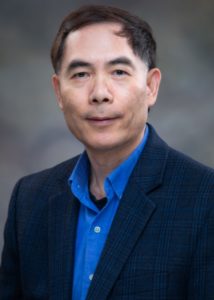 | Chu Chen, Ph.D. Professor Cellular and Integrative Physiology | The research programs in Dr. Chen’s laboratory have been focusing on neuroinflammation in health and disease. Inflammation is now believed to be a common mechanism of disease. Neuroinflammation, the inflammatory response that occurs in the nervous system, has been implicated in many brain disorders/diseases, including epilepsy, traumatic brain injury (TBI), stroke, amyotrophic lateral sclerosis (ALS), multiple sclerosis (MS), Parkinson’s disease (PD), and Alzheimer’s disease (AD). |
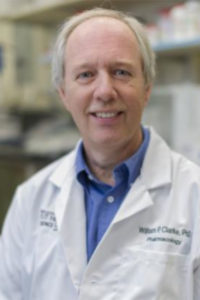 | William Clarke, Ph.D. Professor Pharmacology | Research in Dr. William Clarke’s lab is focused on understanding the molecular mechanisms that underlie drug efficacy (the ability of a drug to produce a response) and its regulation. |
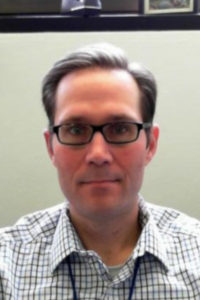 | Gregory Collins, Ph.D. Associate Professor Pharmacology | Research in Dr. Greg Collins’ laboratory is broadly aimed at understanding the determinants of drug-taking and drug-seeking behaviors. |
 | Lynette C. Daws, Ph.D. Professor Cellular and Integrative Physiology | Dr. Lynette Daws’ research focuses on the function and regulation of biogenic amine transporters, including “classic” serotonin, dopamine and norepinephrine transporters, as well as organic cation and plasma membrane monoamine transporters; transporters that were recently identified as important regulators of central biogenic amine neurotransmission. |
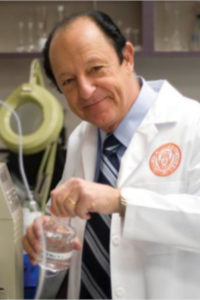 | Ralph A. DeFronzo, M.D. Professor & Division Chief Medicine/Diabetes | Dr. Ralph DeFronzo’s major interests focus on the pathogenesis and treatment of type 2 diabetes mellitus and the central role of insulin resistance in the metabolic-cardiovascular cluster of disorders known collectively as the Insulin Resistance Syndrome. |
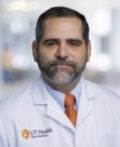 | Anibal Diogenes, D.D.S., Ph.D. Professor & Vice-Chair Department of Endodontics | Dr. Diogenes' areas of research include pain, neuroscience and regenerative endodontics. |
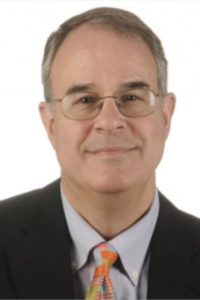 | Marc D. Feldman, M.D. Professor Cardiology | Dr. Marc Feldman is working on developing novel instrumentation in collaboration with faculty at the School of Engineering at the University of Texas in Austin. These instruments are often commercialized for use in animals and patients including Admittance to measure left ventricular pressure volume relations, and Optical coherence tomography to determine the composition of atherosclerotic plaques. |
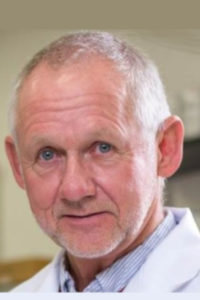 | Charles P. France, Ph.D. Professor Pharmacology | Research in Dr. Charles France’s lab focuses on interactions between behavior and pharmacology and how those interactions impact the abuse liability of drugs. |
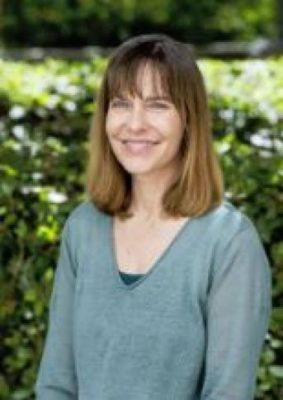 | Amy S. Garrett, Ph.D. Director, Neuroimaging Core for Department of Psychiatry/ Assistant Professor, Department of Radiology and Psychiatry | My research goal is to understand the neural changes that accompany psychotherapy and other interventions for youth with symptoms of psychiatric disorders. My current project uses functional magnetic resonance imaging (fMRI) to investigate changes in brain function associated with Trauma Focused Cognitive Therapy for adolescents with symptoms of posttraumatic stress. |
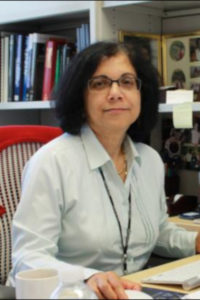 | Rita Ghosh, Ph.D. Associate Professor Urology, Division of Research | Dr. Rita Ghosh’s lab research looks at gene-environment interactions that lead to oxidative stress in cancer and to develop ways to target these deregulated pathways as targets for cancer prevention/therapy. |
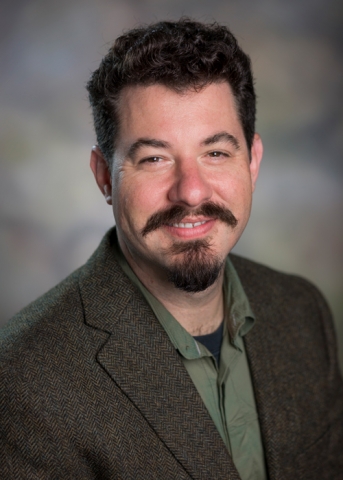 | Brett C. Ginsburg, Ph.D. Professor Psychiatry | Dr. Ginsburg's research program focuses on the behavioral neurobiology and pharmacology of alcohol, opioids, and cannabinoids. |
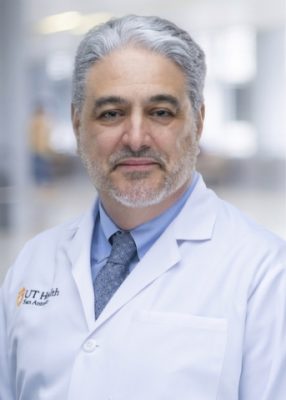 | Mark P. Goldberg, M.D. Associate Vice President for Strategic Research Initiatives Professor of Neurology | Dr. Goldberg is a neuroscientist and neurologist with special interest in injury and recovery after stroke. |
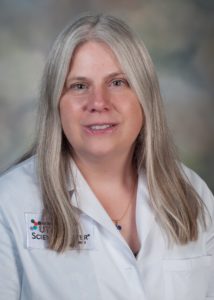 | Georgianna Gould, Ph.D. Associate Professor Cellular and Integrative Physiology | Social behavior, its serotonergic underpinnings and developmental disruption of the social brain in autism, schizophrenia, and other psychiatric disorders are the focus of Dr. Georgianna Gould’s research. |
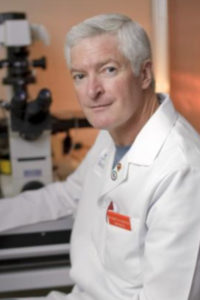 | Kenneth M. Hargreaves, D.D.S., Ph.D. Professor & Chair Endodontics | Dr. Ken Hargreaves lab’s primary research interests are in the pharmacology of pain and inflammation. A major focus is on pharmacological regulation of unmyelinated “C” fiber nociceptors, as well as their plasticity in response to inflammation or nerve injury. Investigations are in progress evaluating the effects of TRPV1, cannabinoids, opioids, adrenergics, NPY, sex steroids and other drugs on regulating the activity of these fibers. |
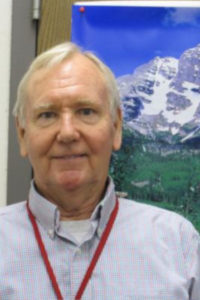 | Stephen Harris, Ph.D. Professor Periodontics | Dr. Stephen Harris lab is interested in various aspects of gene regulation since 1965. Working in Dr. Bert O’Malley lab, he proved that estrogen induced the ovalbumin gene at the mRNA level in 1974. He has worked on various aspects of gene regulation by growth factors and androgens since that time. |
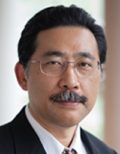 | Noboru Hiroi, Ph.D. Professor Depts. of Cell Systems & Anatomy, Cellular and Integrative Physiology, Pharmacology and Psychiatry | The primary aim of this laboratory is to more fully understand the genetic, cellular and molecular mechanisms of developmental neuropsychiatric disorders. |
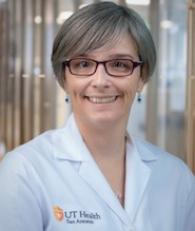 | Sarah Hopp, Ph.D. Assistant Professor Pharmacology | Dr. Sarah Hopp’s research focuses on microglia, the immune cells of the central nervous system, and how these cells are involved in Alzheimer’s disease and other age-associated neurodegenerative diseases. Microglia changes during aging, in Alzheimer’s disease and chronic neuroinflammation. A main research objective is to understand how these changes contribute to the initiation and progression of neurodegeneration and cognitive deficits. |
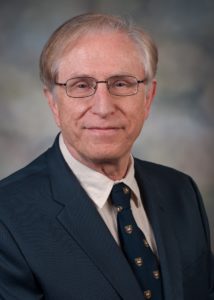 | Peter J. Hornsby, Ph.D. Professor Cellular and Integrative Physiology | Dr. Peter’s Hornsby’s lab focus in on nonhuman primate iPS cells in regenerative medicine. Before personalized cell therapy is used in humans, there is need to move beyond rodent models. Beyond rodents, nonhuman primates play key roles in biomedical research. The marmoset is a suitable size and life span for aging studies, and there is the availability of disease models, e.g. Parkinson’s disease, in this species. |
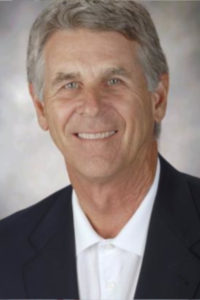 | Martin Javors, Ph.D. Professor Director of the Biological Psychiatry Analytical Labs | Dr. Martin Javors’ principal research interest is biomarkers for alcohol consumption. He also collaborates on many research projects related to drug abuse and addiction, aging, and other areas of research by performing analytical biochemical measurements. |
 | Nathaniel A. Jeske, Ph.D. Associate Professor Oral & Maxillofacial Surgery | Dr. Nathan Jeske’s lab conducts research on signaling mechanisms that mediate inflammatory pain and analgesia. Over 100 million Americans suffer from pain annually, and understanding how this sensation graduates to a chronic state, as well as how to treat it efficaciously, are the primary research goals of the Jeske lab |
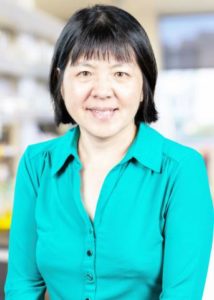 | Jean X. Jiang, Ph.D. Professor and Zachry Distinguished University Chair Biochemistry & Structural Biology | Our current research interests are: 1). To determine the gap junction or hemichannel-dependent and independent mechanisms of connexins in cell growth, differentiation and lens development. 2). To investigate the functional significance of gap junctions, hemichannels and integrins in signaling transmission, skeletal tissue remodeling and cancer metastasis of breast cancer and osteosarcoma. |
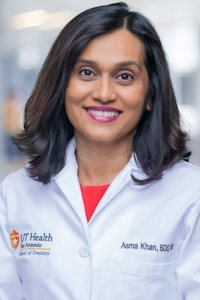 | Asma Khan, Ph.D., B.D.S. Associate Professor Endodontics | Current research projects include clinical research, translational and basic science research. Clinical projects are on the (1) development of new strategies for the diagnosis and management of acute odontogenic pain, (2) evaluation of new analgesics and anesthetics and, (3) development of new diagnostics for the detection of cracks in teeth. Translational and basic science research projects are focused on the role of extracellular vesicles and microRNAs in pain. The aim is to elucidate the mechanisms by which extracellular vesicles and microRNAs modulate pain. |
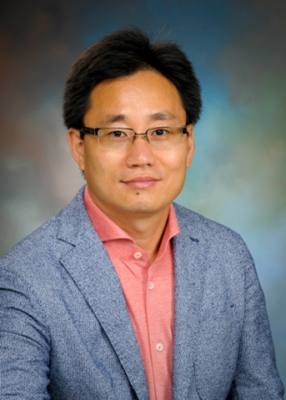 | Yu Shin Kim, Ph.D. Associate Professor Oral & Maxillofacial Surgery | Our research focuses on the function and regulation of sensory modalities including pain, itch, and gentle touch. Special objectives in our research are to understand the cellular and molecular mechanisms of pain by studying neural circuit activities evoked by pain in basal and disease conditions. |
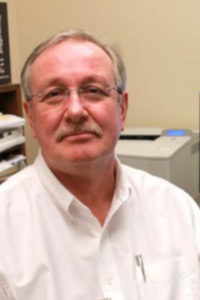 | Wouter Koek, Ph.D. Professor Cell Systems and Anatomy/Psychiatry | The abuse of prescription opioids is a growing public health problem. Prescription opioid abuse often starts in adolescence, but most of what we know about opioids is from research in adults. Dr. Koek’s lab examines abuse-related effects of morphine in adolescent mice and the mechanisms underlying adolescent vulnerability to opioid abuse. |
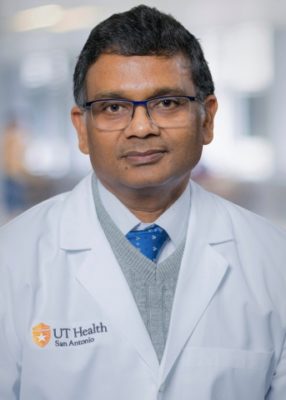 | A. Pratap Kumar, Ph.D. CTRC 40th Anniversary Endowed Distinguished Professor and Vice Chair Professor in Oncology Department of Molecular Medicine, Urology and Pharmacology | His research program is focused on the molecular and cellular mechanisms involved in genitourinary and gastrointestinal pathogenesis. Some of the seminal contributions from his research program include the development of natural products as potential adjuvants for cancer therapy and molecular marker signature for cancer prognosis. Basic science discoveries from his laboratory have been translated to the clinic. |
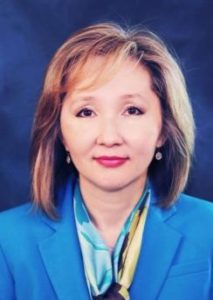 | Raushan Kurmasheva, Ph.D. Assistant Professor Department of Molecular Medicine | The overall focus of Dr. Kurmasheva’s lab is to improve the current treatment of childhood sarcoma. Understanding the mechanisms of resistance of Ewing sarcoma cells to DNA damage with the ultimate goal of developing more effective and less toxic therapy for the patients is the major research focus of the lab. |
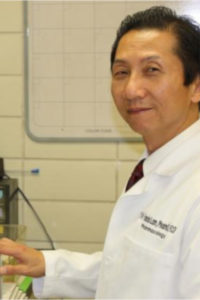 | Yui-Wing Francis Lam, Ph.D. Professor Pharmacology | Significant variability in efficacy and toxicity of medications among patients is largely attributed to innate differences in their capacity to eliminate and react to medications. Dr. Lam has studied how ethnicity and genetic differences affect disposition and response to psychotherapeutic drugs. This has translated to improved understanding of the biological basis for why patients require different doses to elicit appropriate responses, particularly Asians. |
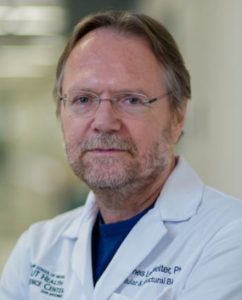 | James Donald Lechleiter, Ph.D. Professor, Cell Systems & Anatomy, Director of the Optical Imaging Core | Dr. Lechleiter's laboratory is interested in the molecular and cellular mechanisms of protection during drug addition, ischemic stress, stroke, traumatic brain injury (TBI) and age-associated neurodegenerative diseases. |
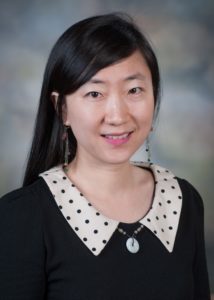 | Hye Young Lee, Ph.D Associate Professor Cellular and Integrative Physiology | Autism spectrum disorders (ASD) form a heterogeneous neurodevelopmental syndrome characterized by deficits in language development/social interactions, and repetitive behavior/restricted interests. |
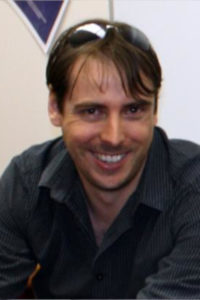 | Daniel J. Lodge, Ph.D. Professor and Chair Department of Pharmacology | Our research is focused on trying to better understand the regulation of the dopamine system in both normal and disease states. Using a combination of techniques including, in vivo electrophysiology, molecular biology and behavior we are attempting to develop novel treatments for schizophrenia. |
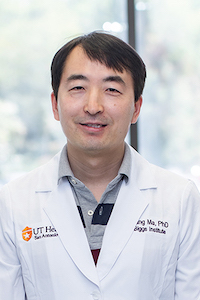 | Liang Ma, Ph.D. Assistant Professor Pharmacology | The research lab of Liang Ma, PhD, seeks to bridge the gap between genomic risk loci of brain illnesses and neurobiological mechanisms by decoding the regulatory relationships of the human genome. The lab’s vision is that decoding the gene regulation can advance the understanding of neurodevelopment and neurodegenerative diseases. |
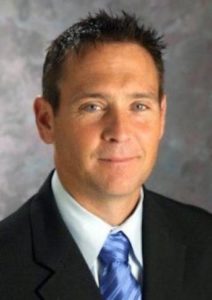 | Stanton McHardy, Ph.D. Adjunct Associate Professor, Chemistry, UTSA | r. McHardy’s lab and the CIDD are focused on medicinal chemistry research in the design, synthesis and development of small molecule compounds across multiple therapeutic disease areas. |
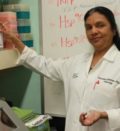 | Sumathy Mohan, Ph.D. Professor/Research | Atherosclerotic lesions typically occur in areas of low shear flow regions. The mechanisms involved in developing these lesions are poorly understood. My long-term goal is first to identify molecular targets. Once this is accomplished it will then be possible to develop strategies for novel interventional procedures and agents to control the development of the disease. |
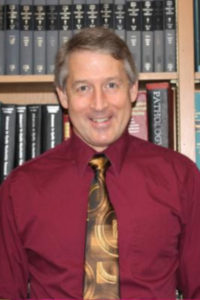 | David A. Morilak, Ph.D. Professor Pharmacology | Dr. David Morilak’s research addresses the neurobiology of stress and its negative impact on health and brain function. He studies how the brain adapts to effectively cope with stress; how chronic stress can lead to serious psychiatric disorders, including depression, PTSD and other illnesses; and his laboratory investigates new and more effective therapeutic strategies for the treatment of such disorders. |
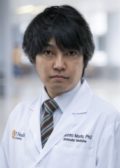 | Masahiro Morita, PhD Assistant Professor Department of Molecular Medicine Barshop Institute for Longevity and Aging Studies | Metabolic reprogramming is one of the hallmarks of cancer. Cancer cells change their metabolic programs to efficiently utilize the limited nutrients, ultimately driving macromolecule synthesis (e.g., protein, lipid and nucleotide synthesis) and cell growth and proliferation. |
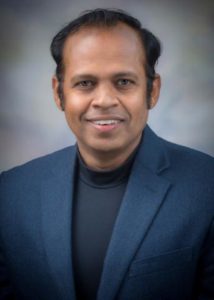 | Madesh Muniswamy, MS, Ph.D. Professor Division of Cardiology Department of Medicine | My laboratory is an integrated molecular, cell and biochemistry laboratory studying mitochondrial physiology, calcium signaling, and redox biology in cell function. Our recent discovery demonstrated that a mitochondrial resident transmembrane protein Mitochondrial Ca2+ Uniporter Regulator 1 (MCUR1) is essential for Mitochondrial Ca2+ Uniporter (MCU)-mediated mitochondrial Ca2+ uptake (Nature Cell Biology 2012; Highlights Nature Reviews Molecular Cell Biology, Cell Reports 2016). |
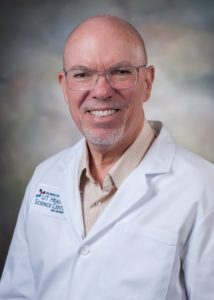 | James F. Nelson, Ph.D. Professor Cellular and Integrative Physiology | Dr. Nelson’s research aims to understand the genetic and physiological basis for aging, using nutritional and pharmacologic interventions that extend rodent lifespan as probes. Most recently, his laboratory discovered dramatic genetic variation in the lifespan response to dietary restriction, including a life-shortening effect in some genotypes. |
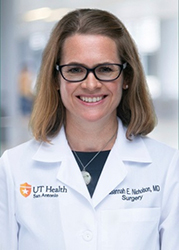 | Susannah E. Nicholson, M.D. Associate Professor Director of Trauma Research Dr. Ferdinand P. Herff Chair in Surgery | |
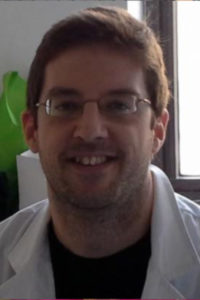 | Luke Norton, Ph.D. Assistant Professor Department of Medicine | My overall goal as a researcher is to combine physiological studies in humans and rodents with cutting-edge molecular and genomics approaches to improve our understanding of the pathogenesis of type 2 diabetes. In particular, I am interested in how novel type 2 diabetes candidate genes influence an individual’s risk for diabetes at the physiological and molecular/genomic level. |
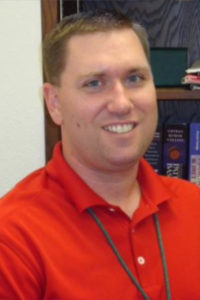 | Jason O'Connor, Ph.D. Assistant Professor Pharmacology | My laboratory is interested in understanding the complex interactions between the immune system and the brain, with an emphasis on inflammation-induced neuropsychiatric and neurodevelopmental diseases. |
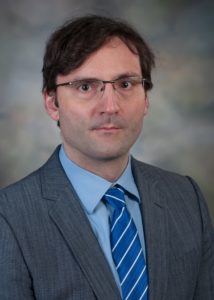 | Martin Paukert, M.D. Associate Professor Cellular and Integrative Physiology | Dr. Martin Paukert’s lab is interested in the role of neuron-astroglia interaction in neuromodulation. Astroglia are recognized for their homeostatic support functions during neuronal activity. |
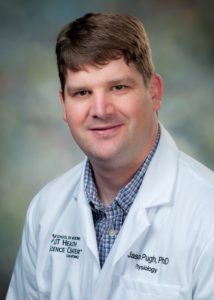 | Jason Pugh, Ph.D. Associate Professor Cellular and Integrative Physiology | Dr. Jason Pugh’s lab is interested in understanding how synaptic properties are fine-tuned to function within specific circuits and process information. |
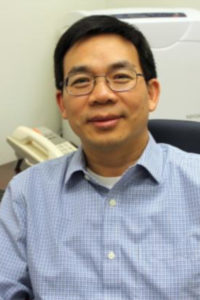 | Qitao Ran, Ph.D. Associate Professor Cell Systems and Anatomy | The main research interest of my lab is to illustrate the underlying mechanisms of mitochondrial dysfunction in Alzheimer’s disease and aging, with a goal of identifying novel targets for Alzheimer’s disease prevention and therapy. |
 | William B. Reeves, M.D., FACP, FASN Professor, Medicine/Nephrology Chairman, Department of Medicine | Dr. Reeves directs an active research program in the field of acute kidney injury and has made significant contributions regarding the role of the innate immune system, including inflammatory and anti-inflammatory cytokines, toll like receptors, and dendritic cells to the pathogenesis of kidney injury. In addition to his research activities, Dr. Reeves is an active clinician who cares for patients with a wide spectrum of kidney diseases. He has been recognized for ranking in the top percentile nationwide for patient satisfaction |
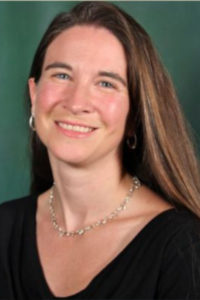 | April Risinger, Ph.D. Associate Professor Greehey Distinguished Chair in Targeted Molecular Therapeutics | Dr. April Risinger’s lab is focused on the discovery and preclinical development of novel natural products that have anticancer potential |
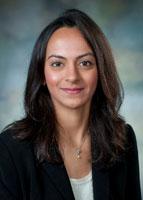 | Nikita Ruparel, D.D.S., MS, Ph.D. Associate Professor Endodontics | Dr. Ruparel's research projects are focused in four broad themes in the area of pain and stem cells. The four main areas of research are: 1) development of novel non-opioid drugs using human tissues and stem cells to treat inflammatory pain using an clinically translational orofacial model of apical periodontitis-induced pain; 2) study sexually dimorphic pain mechanisms mediated by serotonin on nociceptive neurons using a clinically translation orofacial model of dental pulp pain; 3) study the role and function of stem cells in tooth regeneration, specially the role of bacteria/biofilms on stem cell fate and the immuno- regulatory role of stem cells in wound healing and regeneration and 4) clinical trials in patients to evaluate the role of endodontic procedures on healing and bacterial reduction using cone beam computed tomography and RNA sequencing, respectively. |
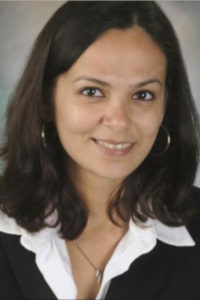 | Shivani Ruparel, Ph.D. Associate Professor Endodontics | Dr. Ruparel’s research program focuses on elucidating mechanisms for cancer cells and sensory neuron interactions in mediating pain as well as tumorigenesis. Her research investigates the contribution of oral cancer cells in regulating sensory nerve terminals at the site of tumor growth leading to cancer-induced pain and studying the mechanisms underlying this communication. |
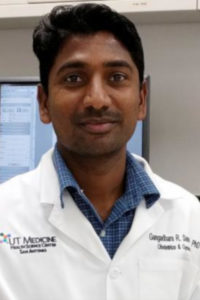 | Gangadhara R. Sareddy, Ph.D. Assistant Professor Obstetrics & Gynecology | Sareddy’s current research interest include: 1) understanding the significance of histone lysine demethylase KDM1A and nuclear receptor signaling in glioma stem cells and hypoxia 2) studying the tumor suppressor functions of estrogen receptor beta signaling in ovarian cancer progression and therapy resistance. |
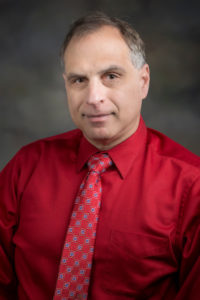 | Mark S. Shapiro, Ph.D. Professor Cellular and Integrative Physiology | The research program of the Shapiro laboratory centers on the physiology, structure and regulation of voltage-gated K+ and Ca2+, TRP and Cl– ion channels that serve multiple roles in nerve and muscle, as well as their roles as novel therapeutic targets in myriad diseases of the nervous system. |
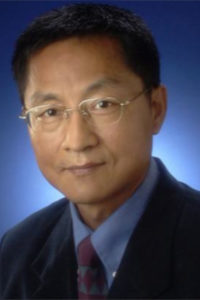 | Yuguang (Roger) Shi, Ph.D. Chair in Metabolic Biology Professor of Pharmacology Barshop Institute for Longevity & Aging Studies | Dr. Yuguang (Roger) Shi’s lab focuses on translational aspects of aging-related metabolic diseases using molecular, cellular, metabolic, and transgenic approaches. Our work has recently identified a critical missing link between mitochondrial dysfunction in aging and the onset of various aging-related diseases, paving the way for the development of novel treatment for these pathogenic conditions. |
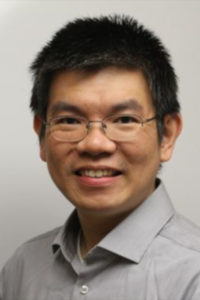 | Gek-Ming Sia, Ph.D. Assistant Professor Pharmacology | Research in my lab focuses on the molecular mechanisms of synapse formation and elimination. |
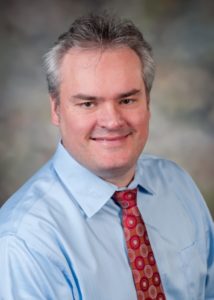 | James Stockand, Ph.D. Professor Cellular and Integrative Physiology | Research in the Stockand laboratory focuses on ion channels and ion transport. We are particularly interested in the proteins involved in controlling ion movement into neurons and epithelial cells. |
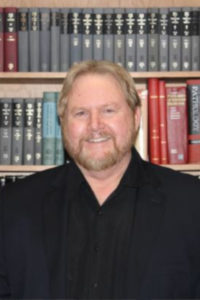 | J. Randy Strong, Ph.D. Professor Barshop/ Pharmacology | My research has two major objectives: the first is directed toward understanding receptor mechanisms involved in regulating tyrosine hydroxylase (TH) gene expression, the rate limiting enzyme in the synthesis of catecholamines. The latter substances are crucially involved in various life-sustaining functions and are implicated in diseases such as hypertension, depression and Parkinson’s disease |
| Xiaoli Sun, Ph.D. Assistant Professor | Our lab engages communities at Joe R. & Teresa Lozano Long School of Medicine, the UT Health San Antonio MD Anderson Cancer Center, and the UT Health San Antonio Transplant Center to study chronic diseases, including atherosclerosis, nonalcoholic fatty liver diseases, and liver cancer. | |
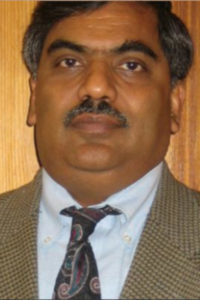 | Rajeshwar R. Tekmal, Ph.D. Professor Obstetrics & Gynecology | The long-range objective of Dr. Tekmal’s research is to elucidate the role of hormones and growth factors and their receptors in the initiation and progression of breast, cervical and ovarian cancers. |
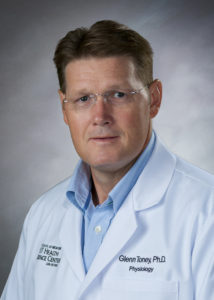 | Glenn M. Toney, Ph.D. Professor Cellular and Integrative Physiology | Dr. Glenn Toney’s research findings indicate that neurological dysfunction is a major unrecognized cause of treatment resistant hypertension. Indeed, studies show that specific populations of neurons in the brainstem and hypothalamus generate exaggerated motor neuron output trafficked through sympathetic nerves. |
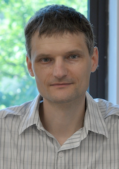 | Alexei V. Tumanov, M.D., Ph.D.Alexei V. Tumanov, M.D., Ph.D. Associate Professor | Dr. Tumanov’s research focuses on the regulation of mucosal immunity and cancer. We investigate how the immune system regulates the delicate balance between protective immunity and immunopathology at mucosal surfaces, particularly in the gut. The goal of Dr. Tumanov`s research program is to combine molecular data with in vivo models to understand the mechanisms underlying homeostatic and pathological conditions for the development of effective immunotherapies. |
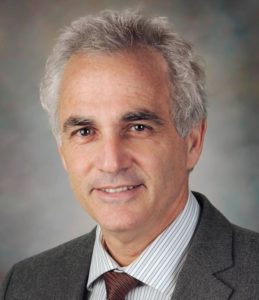 | David S. Weiss, Ph.D. Dean Graduate School of Biomedcial Sciences Professor Cellular and Integrative Physiology | y-aminobutyric acid (GABA) is the major inhibitory neurotransmitter in the mammalian brain. Dysfunctions of GABA-mediated inhibition have been implicated in the etiology of a variety of brain disorders such as epilepsy. Furthermore, GABA receptors are a target for a variety of therapeutic, neuroactive compounds such as benzodiazepines and barbiturates. |
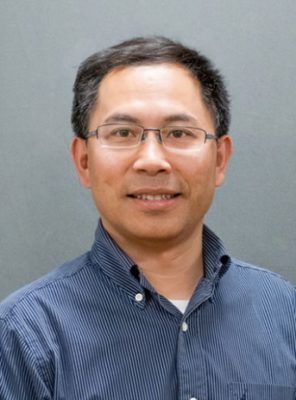 | Mingjiang Xu, Ph.D. Professor, Department of Molecular Medicine, Cancer Center Council Distinguished Chair in Oncology | My laboratory was one of the first laboratories to generate Tet2knockout mouse models and to document the causative role of TET2 inactivation in the development of myeloid malignancies due to enhanced hematopoietic stem cell (HSC) self-renewal and skewed differentiation towards granulocytic/monocytic lineages (Blood118:4509, 2011). Our subsequent studies have provided additional insights into the role of TET2 in myeloid malignancies. |
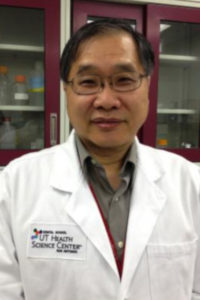 | Chih-Ko Yeh, B.D.S., Ph.D. Professor Comprehensive Dentistry | Dr. Yeh’s research is focused on studying the effect of aging on oral health, with a special emphasis on saliva and salivary gland biology/physiology. These studies include: 1) monitoring saliva function in clinical samples from aging, hypertensive, and diabetic stratified populations, as well as HIV infected patients, 2) exploring the pathogenesis of age-related oral and salivary gland diseases, and 3) salivary gland regeneration/repair with stem cells using genomic and proteomic approaches. |
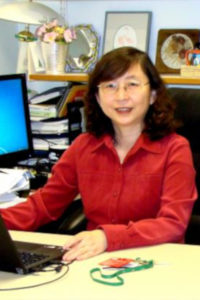 | Meingwei Zhang, M.D., Ph.D. Professor of Molecular Medicine The Ewing Halsell Distinguished Chair in Research Associate Director of the MD/PhD Program at UT Health San Antonio | The Zang lab focuses on the molecular mechanisms underlying diabetes and fatty liver disease. |
